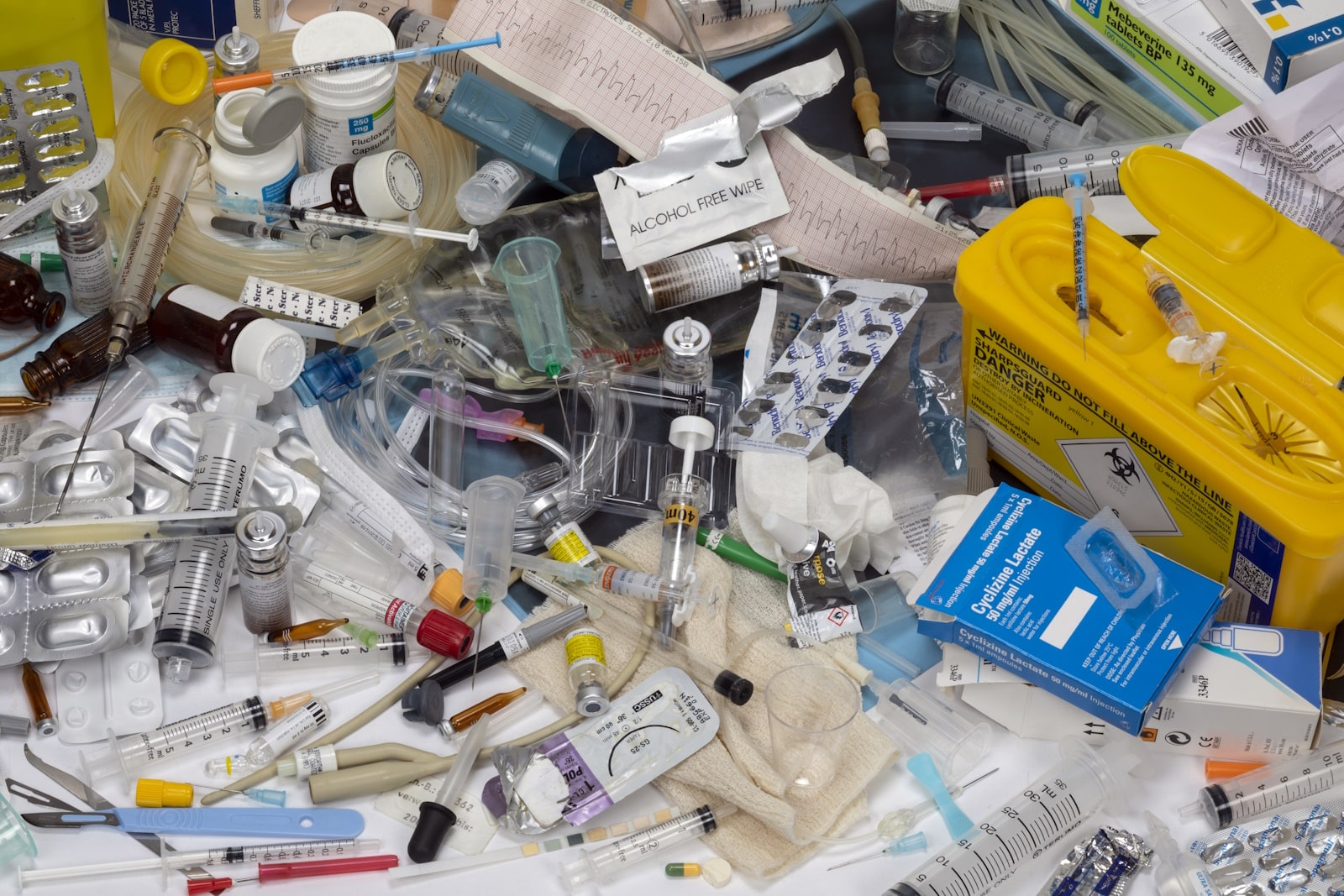The Global Challenge of Medical Disposal Waste
As the healthcare industry expands globally, particularly with the rise of pandemics and medical treatments, the volume of medical waste generated continues to grow. Improper disposal, inadequate infrastructure, and increasing complexity in waste management systems are creating significant challenges. This post explores the key concerns surrounding medical disposal waste and potential solutions.
Public Health Concerns
Health Risks from Improper Disposal
Improper disposal of medical waste poses severe public health risks. Medical waste includes both hazardous and non-hazardous materials, with the hazardous fraction containing infectious materials, sharps, pharmaceuticals, and even radioactive substances. When not handled properly, these materials can lead to disease transmission, toxic exposure, and environmental contamination. Sharps, such as needles and scalpels, are especially dangerous as they can transmit infections like hepatitis B, C, and HIV.
Globally, over 16 billion injections are administered each year, and improper disposal of syringes remains a significant public health concern. Unsafe practices can lead to needlestick injuries, especially among healthcare workers and waste handlers.
Sharps Management
Sharps waste is particularly hazardous. Inadequate management can result in needle-stick injuries, increasing the risk of diseases. In many low-income countries, waste handlers are at heightened risk due to poor infrastructure and lack of protective measures. These workers, often in informal settings, are exposed to medical waste without proper training or equipment.
Impact on Waste Workers
Waste handlers are at significant risk when medical disposal waste is not managed correctly. In developing countries, where waste segregation is inadequate, workers may come into contact with hazardous materials, exposing them to toxic chemicals, infectious pathogens, and radiation. Studies have shown that improper medical waste handling can cause injuries, burns, and the spread of antimicrobial resistance.
Global Challenges
Disposal in Developing Countries
Medical waste management is particularly problematic in developing countries. Limited infrastructure, financial constraints, and lack of enforcement mean that waste is often poorly managed. In many low-income countries, waste is not segregated into hazardous and non-hazardous materials, heightening the risk of contamination and disease. In some regions, medical waste is incinerated improperly or openly burned, releasing harmful toxins into the air, posing risks to both human health and the environment.
Pandemic and Disaster Scenarios
The COVID-19 pandemic revealed vulnerabilities in global waste management systems. In times of crisis, medical disposal waste increases dramatically, especially in areas hardest hit by the disease. Improper disposal of PPE, syringes, and other medical items during the pandemic overwhelmed existing systems. Countries like India and Brazil faced significant challenges in managing the surge in medical waste, resulting in concerns about environmental contamination and public health.
International Collaboration
The medical waste disposal issue is global, requiring international collaboration. Developed nations can support less-resourced countries by providing technology, expertise, and funding. By sharing best practices and knowledge, global efforts can address critical issues in medical waste disposal, particularly in underserved regions.
Business and Economic Impacts
Cost of Disposal
The financial burden of medical waste disposal is significant. Healthcare facilities must invest in specialized infrastructure for waste segregation, transport, treatment, and disposal. These processes require resources, technology, and trained personnel, all of which contribute to costs. In many developed countries, complying with regulations adds additional financial pressure.
In low-income countries, the cost of medical waste management is often prohibitive, leading to delays in implementing effective systems. However, the long-term cost of neglecting proper waste disposal is even greater, including the risk of disease outbreaks and environmental contamination.
Outsourcing Waste Management
Outsourcing medical waste management to specialized companies is a growing trend, particularly for healthcare providers who want to comply with regulations and reduce operational burdens. These companies offer expertise and infrastructure to handle medical waste safely and efficiently. For example, A-Thermal has invested in advanced technologies that minimise the environmental impact of medical waste incineration, providing a sustainable option for waste disposal.
Market Trends
The medical waste management market is growing rapidly, driven by heightened awareness of environmental and health risks. Technologies like waste-to-energy systems and automated sorting solutions are reshaping the industry, offering more sustainable and cost-effective options. The global market for medical waste management services is expected to continue growing as more countries adopt safer and more efficient disposal practices.
Emerging Solutions
Sustainable Practices
Sustainability is increasingly important in medical waste management. Traditional incineration methods release harmful emissions, while landfills contribute to long-term environmental harm. Waste-to-energy systems, which convert medical waste into energy, are becoming more prevalent as a cleaner, more sustainable alternative. Recycling initiatives, such as the reuse of plastics, are also being explored to reduce waste.
Technology Integration
Innovations in automation and technology are transforming medical waste management. Automated systems improve waste segregation, ensuring that hazardous materials are separated and treated properly. Digital tracking tools are also helping to monitor the movement of waste throughout the disposal process, increasing compliance and transparency.
Public Education
Education is key to improving waste disposal practices. In many developing countries, educating healthcare workers, waste handlers, and the general public about the risks of improper disposal is crucial. Awareness campaigns can help reduce unsafe practices and ensure that medical waste is managed correctly from start to finish.
By addressing the risks of improper disposal, promoting sustainable practices, and fostering international collaboration, we can mitigate the negative effects of medical waste. Healthcare providers, governments, and waste management companies must work together to find solutions that ensure safe, effective, and environmentally responsible disposal practices.
At A-Thermal, we are committed to providing innovative solutions for medical waste disposal that reduce environmental impact while maintaining the highest standards of safety and efficiency. Contact us today to learn how we can help your organisation manage medical disposal waste more sustainably.







